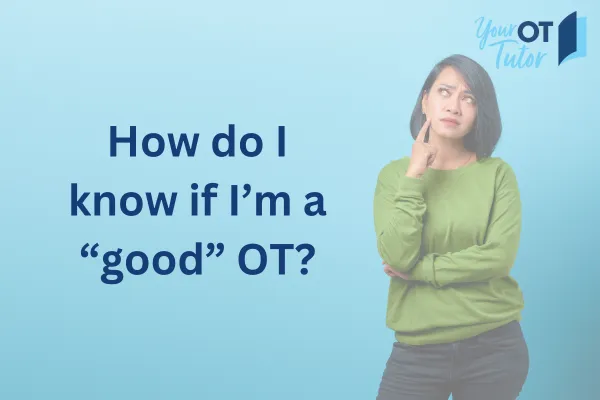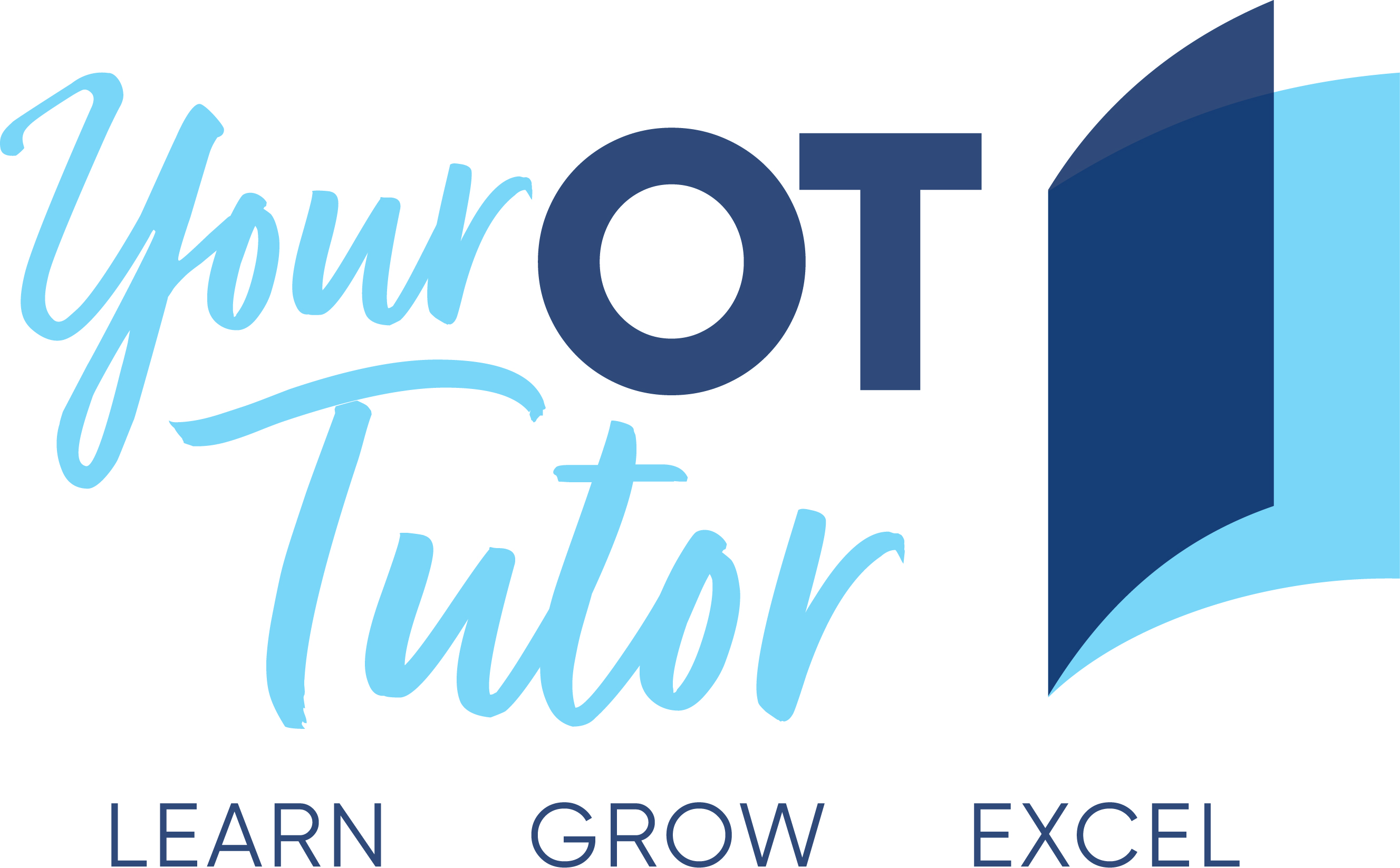THE YOUR OT TUTOR BLOG
Articles on important topics for occupational therapists...


How do I know if I'm a "good" OT?
Sometimes OTs lack confidence even though they’re competent. Sometimes they lack competence even though they’re confident. It’s a tricky balance to get right, but in this blog, I’ll share 5 methods that can help you evaluate if you’re a ‘good’ OT.
But let’s unpack this a little further first…
Sometimes we’re competent, but lack confidence... This can be because imposter syndrome kicks in, or broken systems work against us, and we doubt what we know and what we can do well.
Sometimes we’re confident, but lack competence... This is often due to a lack of supervision or not pausing to reflect on whether we have captured the true complexity or depth of what is required for best practice.
So how can we get the balance right? Here are five things to try.
1. Do some training on the topic with an expert
Training can be helpful even if you think you're nailing it. You might find out that you've actually been missing a whole layer of complexity. You may find out you’re doing well, but there are tweaks that could take your skills to the next level. Or the benefit may be that it confirms you’ve been doing a great job, and that your confidence is warranted!
2. Ask for feedback from a skilled supervisor
Gaining confidence from completing training is still dependent on your own self-assessment. Don’t underestimate the power of direct feedback via a 1:1 supervision session with a supervisor who knows that topic or skill well. If the expert says there is room for improvement, consider it! But if they say you’re doing a good job, allow yourself the win and know that you can back yourself.
3. Consider the outcomes you’ve been achieving
One way to know if you’re doing a good job is to make sure you’re completing the full OT process, so you know your outcomes. Are your clients reaching their goals? Are your funding requests approved? Are your clients happy!? If you’re not following up, you won’t have the proof to give you confidence (or the evidence that there is room for improvement). NB Remember sometimes outcomes are impacted by reasons beyond our control - that’s when you use the other methods I’ve mentioned too...
4. Chat with your colleagues
You can start to learn exactly how much you know or don’t know in everyday conversations with your colleagues. When others are talking about what they’re doing with their client, are they recommending things you’re not even aware of? Or when others ask questions, are you the go-to person that always seems able to fill the gaps? If you are, and all the other methods are pointing towards competence too, then that should be another boost for your confidence.
5. The power of self-reflection
One of the most important things all OTs should be doing, is to reflect on our performance. We shouldn’t just stop and think “What happened!?” when things go wrong. We should stop and think “Why did that work?” when things go right. If we keep track of our wins, not just our challenges, we’ll start to build a balanced record of our skill development. If a supervisor helps by confirming your self-assessment, you’ll have competence AND confidence.
You may have noticed two common themes coming through – the importance of self-reflection and the benefits of learning from an experienced supervisor. These are essential for both new grads and experienced OTs.
Too often I’ve seen new grads prioritising perks or salary over the best support. Or experienced sole traders not making time for any sort of supervision. But it only leads to decreased competence, decreased confidence, or both. It’s not good for yourself, it’s not good for the profession, and it’s not good for our clients.
If you need some tips for deciding what supervision, mentoring or training is best for you, feel free to get in touch.
And if you’re an OT who wants to be a better OT who loves what they do, check out my CPD memberships. YOTT Alliance is for experienced OTs, while YOTT Connector is for new grads and students.
If you found this newsletter helpful, make sure you subscribe and ring the bell on my profile so you’ll be notified whenever I put up a new post. Also check out the Your OT Tutor website and subscribe to the mailing list or sign-up for the Learning Library – there are heaps of resources, courses, and CPD opportunities, with more being added regularly.
#OccupationalTherapy #NDIS #YourOTTutor






